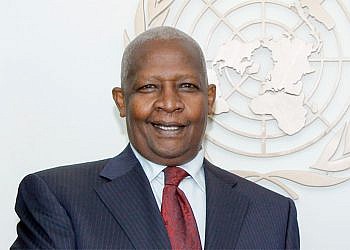The Uganda Virus Research Institute (UVRI) has initiated a major project to develop a vaccine for the deadly Crimean-Congo haemorrhagic fever (CCHF), a viral disease known for its high mortality rates.
The launch, held at Lake Victoria Hotel in Entebbe, was led by UVRI Executive Director Prof. Pontiano Kaleebu, who highlighted the critical need for the vaccine to address the public health threat.
“Crimean-Congo haemorrhagic fever is highly fatal, with a mortality rate of 10% to 40% among those infected,” Prof. Kaleebu noted. The virus affects both humans and animals, although animals often show no symptoms.
However, infected animals can suffer from abortions, and the disease is transmitted through ticks or contact between infected animals and humans.
Despite its presence in Uganda’s cattle corridor, no vaccine or treatment currently exists for the disease.
Global presence and fatalities
CCHF has been reported in numerous countries across Africa, Asia, Eastern Europe, and the Middle East. Nations such as Turkey, Iran, Pakistan, Kazakhstan, Russia, and South Africa have all experienced outbreaks.
For example, Turkey records hundreds of cases annually, with over 1,000 cases and 40 deaths reported in some years. Iran has also faced a significant number of cases, with a mortality rate of around 15%, while Pakistan frequently reports outbreaks with dozens of deaths.
In total, hundreds of deaths have been attributed to CCHF across these regions, underscoring the urgency for vaccine development.
The UVRI-led project is supported by Innovate UK and the Medical Research Council from London and is part of Uganda’s broader effort to enhance its capacity for vaccine research and development.
Prof. Kaleebu explained that Uganda would utilise the chimpanzee adenoviral vector platform, initially developed for COVID-19 vaccines, for this new project.
This platform was funded by the Science Technology and Innovation office of the president, with President Yoweri Museveni pushing for local vaccine production capabilities.
Building local capacity
The research, which will take two years, is seen as a vital step in Uganda’s efforts to build local expertise in vaccine development.
Dr. Sheila Balinda, the principal investigator, stated that the World Health Organisation has classified CCHF as a priority disease due to its potential for rapid geographic spread, further emphasizing the need for a vaccine.
Prof. Moffat Nyirenda, Director of the MRC/UVRI & LSHTM Uganda Research Unit, welcomed the project as an exciting milestone.
“We don’t yet have the capacity to manufacture vaccines in Uganda, but this project represents the beginning of that journey,” Prof. Nyirenda said.
He added that this effort would not only contribute to the fight against CCHF but would also bolster Uganda’s overall vaccine development infrastructure, benefiting future public health initiatives.
He praised the government’s political will and financial support in spearheading vaccine development projects, which could significantly improve Uganda’s ability to respond to diseases like CCHF and others.










































